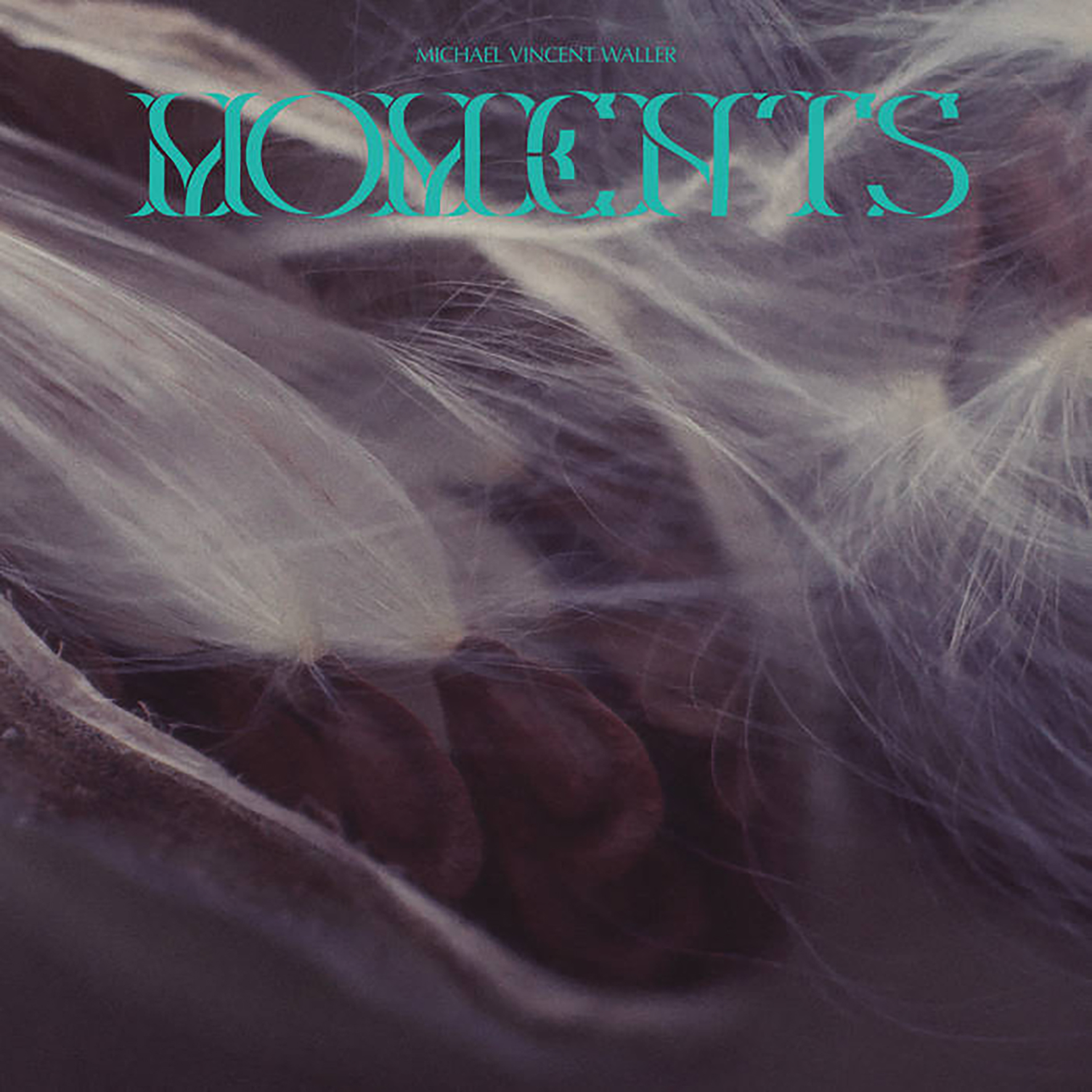Michael Vincent Waller, "Moments"
 This NYC-based composer has long been a bit of a curious enigma to me, as he seems to travel primarily in experimental music circles, yet seems unwaveringly devoted to making very traditional and melodic classical music. In a quietly subversive way, however, composing simple, elegantly lovely piano pieces in 2019 is a radical act in its own right. That is where Waller (mostly) arrives on Moments, his third album and most minimal, distilled statement to date. That approach suits him well, though I am not necessarily sure he needed go more minimal than he did with 2017’s excellent cello/piano album Trajectories (released on Sean McCann’s always interesting Recital Program imprint). To some degree, Moments feels less like complete statement than its predecessor, resembling instead a kind of expertly curated mixtape of different piano composers unified by a knack for lyrical melodies and a sort of warm, wistful Romanticism. Some are among the most beautiful pieces that Waller has composed to date though, which makes Moments akin to a strong (if improbable) "singles album" of sorts. At times, it also feels like the beginnings of a major creative leap forward.
This NYC-based composer has long been a bit of a curious enigma to me, as he seems to travel primarily in experimental music circles, yet seems unwaveringly devoted to making very traditional and melodic classical music. In a quietly subversive way, however, composing simple, elegantly lovely piano pieces in 2019 is a radical act in its own right. That is where Waller (mostly) arrives on Moments, his third album and most minimal, distilled statement to date. That approach suits him well, though I am not necessarily sure he needed go more minimal than he did with 2017’s excellent cello/piano album Trajectories (released on Sean McCann’s always interesting Recital Program imprint). To some degree, Moments feels less like complete statement than its predecessor, resembling instead a kind of expertly curated mixtape of different piano composers unified by a knack for lyrical melodies and a sort of warm, wistful Romanticism. Some are among the most beautiful pieces that Waller has composed to date though, which makes Moments akin to a strong (if improbable) "singles album" of sorts. At times, it also feels like the beginnings of a major creative leap forward.
One bit of intriguing trivia about Michael Vincent Waller is that he seems to be the only person who has ever studied with La Monte Young that did not become a drone artist, become obsessed with Just Intonation, build bizarre installations, or compose radical operas.Instead, he has devoted himself to the "Western classical music tradition in its most archetypal forms," which is a bit like discovering that Norman Rockwell apprenticed for years with Salvador Dali or Marcel Duchamp.Curiously, Waller also studied with Bunita Marcus, which seems to have left more of a stylistic impact: one of the album's brief vibraphone pieces ("Love III. Images") favorably recalls Morton Feldman's penchant for queasily dissonant harmonies and lingering decays.For the most part, however, Moments seems most stylistically indebted to Erik Satie, as that name will be invariably evoked for all eternity whenever a piano composer is drawn towards simplicity and melody.Unseen World's description of the album presciently anticipates that comparison, but notes that Waller's more Romantic and emotionally driven work diverges from Satie's "blank canvas" approach.I do not necessarily agree, as I find some of Satie's work to be incredibly moving, but it is fair to say that Moments is a very purposeful, heartfelt, and melodic collection of pieces that could not be mistaken for ambient or "furniture music."At its heart, Moments is kind of an impressionistic diary of warm or bittersweet memories shared through a series of evocative vignettes.Every piece on the album seems to be inspired by a specific person or moment from Waller’s life and the album is anchored by two multipart suites entitled "Love" and "Return From LA."
Any attempt to make stylistic generalizations about Waller’s aesthetic on Moments beyond "simple" and "melodic" is a fundamentally doomed endeavor though, as the album is divided into tenderly lovely piano miniatures (played by R. Andrew Lee), impressionistic vibraphone interludes (played by William Winant), and outliers that elude either category.Uncharacteristically, I am most drawn to Waller's more straightforward classical fare.In particular, I love the lazily tumbling "For Papa," as the underlying arpeggios seem to hang in a state of suspended animation as the melody slowly cascades and ripples.Elsewhere, both "Return From LA-IV" and "Nocturnes-No. 1" feel like archetypal Satie melancholia, but either would likely be ranked Satie's finest work if he had written them himself.Much less understated is "Jennifer," which is an elegantly controlled storm of dramatic intensity.More importantly, Waller does some beautiful things with lagging, stumbling melodies that fleetingly break free from the central pulse to take on a life of their own."Return From LA-I" is yet another highlight, albeit a more Impressionism-inspired one, evoking a flickering, sepia-toned film reel of a magical realist Paris from a hundred years ago.For the most part, I tend to prefer it when Waller keeps things understated, which he does for most of the album.There are some exceptions though.The best of them is the closing "Bounding," which gradually blossoms into an impassioned crescendo of descending melodies that streak across the underlying chord progression like falling stars.
As much as I like to think I have developed a deep understanding and appreciation for the nuances of music, there are still some things that seem like absolute sorcery that I will never fully comprehend.For example, I could never replicate a good Merzbow album even if I had infinite time and all of the same gear.Similarly, I will never grasp how someone like R. Andrew Lee is able to look at some pieces of paper and make it feel as though he is effortlessly and fluidly conveying the delicate emotional shading and unusual timing flourishes that Waller had conjured up in his head.More specifically, I do not understand how some of the melodies in "Jennifer" could possibly be notated and replicated, as they seem to wind like tendrils of smoke independent of time signature or beat.As such, "Jennifer" and "For Papa" are the pieces that fascinate me the most on Moments, as Waller is able to make melodies dance and twist is a way that feels sensuous and natural (a very different achievement than dexterously playing with unusual time signatures in an ostentatious way).Those pieces are also the ones that make me feel like I have only seen the beginnings of what Waller’s vision will ultimately evolve into, as he has absorbed a impressive array of eclectic and radical influences, but they are only slowly, subtly, and seamlessly being assimilated into an aesthetic that is fundamentally grounded in melody and increasingly focused on making a direct, human connection.While it is no secret that I love wild ideas and ambitious experimentation for their own sake, the best albums tend to be the those that manage to tether those impulses to a center that has soul and strong hooks.To his credit, Waller seems to intuitively grasp that, though for now his feet are planted mostly on the side of melodicism.
Samples can be found here.



